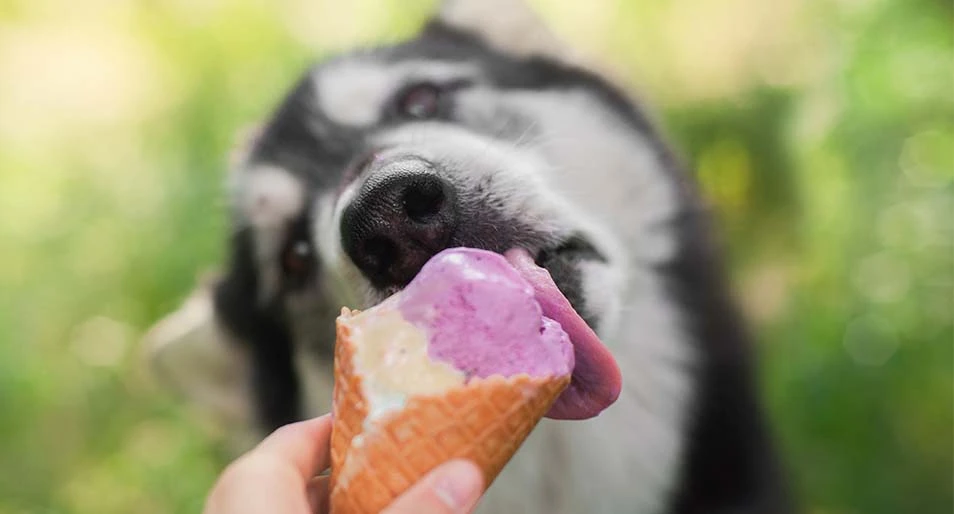PET HEALTH
Xylitol and Dogs: What You Need to Know
If you have a canine companion, chances are you've treated them to some sweet peanut butter treats on occasion. Maybe you've let them lick the jar when it's empty or even let them lick it right from the spoon.
For the most part, peanut butter is a safe, tasty snack for your pup. However, some manufacturers started replacing sugar in their peanut butter with a cheaper artificial alternative that is dangerous to dogs: xylitol.
Is Xylitol Bad for Dogs?
Yes, xylitol is bad for dogs. Xylitol poisoning can cause serious illness and even death in dogs.3 The effects set in rapidly, affecting their blood sugar levels. Generally, the xylitol poisoning symptoms include vomiting, weakness, and seizures. Dogs usually vomit within half an hour of xylitol ingestion. However, the full effect of symptoms may take as long as 12 to 24 hours to manifest in your pup.
Xylitol stimulates the release of insulin in dogs and can drop their blood sugar quickly. This causes weakness and loss of coordination. Left untreated, xylitol ingestion can be life-threatening.
You may be wondering how much xylitol is toxic to dogs. Something small like a piece of gum or two can cause their blood sugar to drop dangerously low, causing hypoglycemia. Meanwhile, large amounts of ingested xylitol can cause acute liver failure and death.3
The danger of xylitol for your dog cannot be overstated. Unfortunately, it may be more present in your home than you think.
Common Products That Contain Xylitol
Dog owners should be wary of products with “no-sugar added” or other low-sugar branding on the packaging. These often contain sugar substitutes, including xylitol (also called birch sugar). Always check the label for xylitol and keep it safely out of your dog's reach if it contains the artificial sweetener.
Sugarless gum is a common culprit, as many dogs have been known to gnaw on a pack left on the coffee table or nightstand. There are also a few sneaky personal care products that you would be surprised to find out contain xylitol, such as shampoo and lip balm.
Foods That May Contain Xylitol
Xylitol may be present in these foods. Ingesting any of these could cause xylitol poisoning in dogs:
- Peanut butter
- Other nut butters or spreads
- Sugar-free chewing gum, candy, and mints
- Chocolate (dogs shouldn’t eat chocolate in general, even without xylitol)
- Butter or margarine-like spreads
- Cookies, desserts, ice cream, or yogurt
- Flavored waters or sports drinks
Non-Foods That May Contain Xylitol
Xylitol can be found in non-food products, too. Make sure you check the label on any beauty product, personal care product, or medicine that you put in your mouth to see if it contains xylitol. Such products to inspect include
Beauty products:
- Shampoo
- Lip balms, tints, and glosses
- Foundation
- Tinted moisturizer
- Makeup primer
- Face wipes
Oral care products:
- Toothpaste
- Mouthwash
- Dental floss
- Dry mouth lozenges
- Breath spray
- Teeth whiteners
- Charcoal tooth powder
Medicines and supplements:
- Allergy medication
- Vitamins, supplements, and oils
Keeping these harmful products away from your furry friend is the first and best line of defense to keep them happy and healthy for years to come.
How Can Insurance Help with Xylitol Ingestion?
If you suspect your dog has ingested even a tiny bit of a product containing xylitol, call the pet poison helpline, or get them to the nearest vet or animal hospital as soon as possible. Don’t wait for your dog to show xylitol poisoning symptoms. Time is of the essence.
Depending on how your dog reacts, xylitol toxicosis treatment may include hospitalization, stabilizing blood sugar, and giving your pet fluids through an IV. They may need to be put on medication or have their liver enzymes monitored as they recover.4
Vet appointments and animal hospital visits can be expensive, but that’s where dog insurance comes in. Like your health insurance, dog insurance helps cover emergencies like xylitol poisoning.2 Consider investing in a dog insurance policy with MetLife Pet Insurance.1 Get a quote today.

